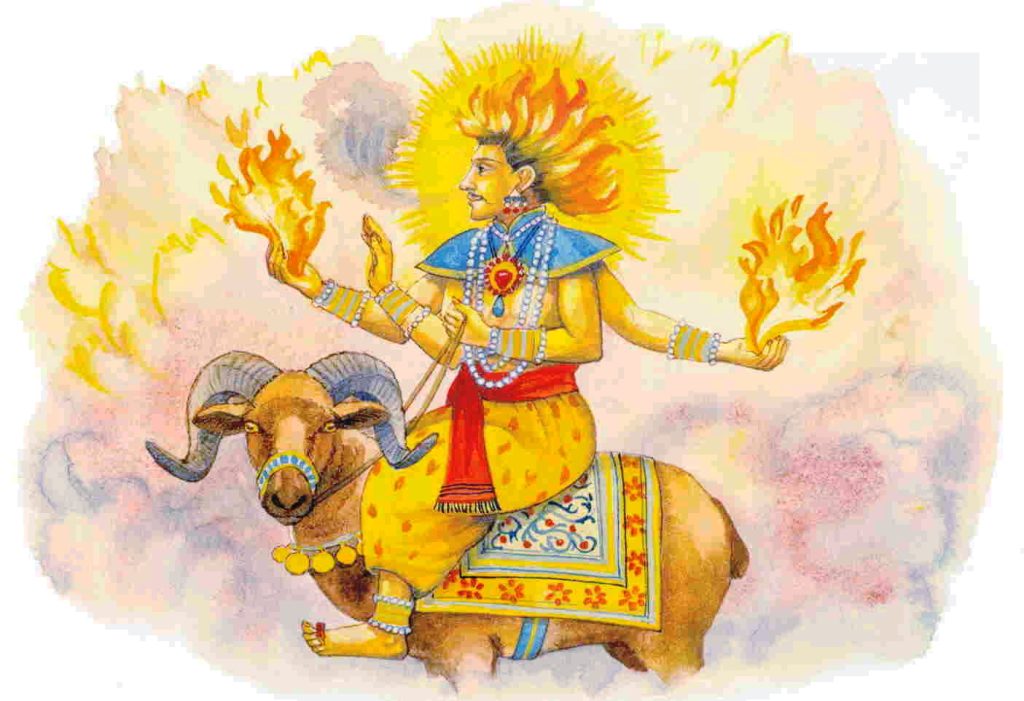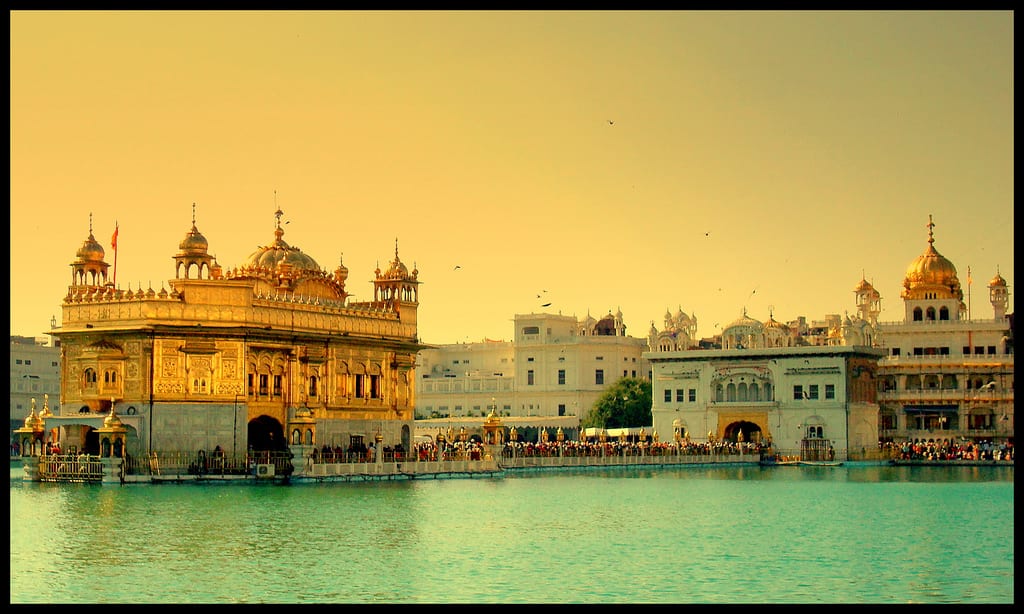Learn about Sant Atar Singh's devotion to rebuilding Reru Sahib and fostering Sikh education. Explore his inspiring journey of seva in Ludhiana.
Discover the mystical power of Agni, the Vedic god of fire, revered as a mediator and purifier across traditions, dwelling in every home and heart.
BHAG SINGH, SANT (1766-1839), of Kuri. a holy man widely respected in his time, was born the son of Bhai Hans Rai in 1766 at Qadirabad, a village in Gujrat district (now in Pakistan), where his grandfather, Gurbakhsh Singh, said to have been in the retinue of Guru Gobind Singh, settled after the Guru`s passing away at Nanded, in the Deccan. Bhag Singh learnt to read Gurmukhi letters and the Guru Granth Sahib at the village gurdwara. As he grew up, he made a pilgrimage to Nanded. Returning to the north, he visited Una, now in Himachal Pradesh, where he became a disciple of Baba Sahib Singh Bedi, a descendant of Guru Nanak in direct line.
BISHAN SINGH, SANT (d. 1973), holy saint most of whose life was spent in works of seva, raising of buildings by labour volunteered by devotees, at different shrine sites, came of a well to do Sindhi family. Nothing is known about his early life except that his parents were Sahajdhari Sikhs and that he was in government service when he came in 1940 to the Punjab on a pilgrimage visiting Sikh places of worship and saw Sant Gurmukh Singh of Patiala, then engaged in massive works of seva reconstructing the shrines and sacred pools at Khadur Sahib and Goindval. Bishan Singh was so impressed by the piousness, humility and devotion of Sant Gurmukh Singh and of the large number of Sikhs volunteering their labour that he resigned his post in the government, gave away his personal belongings and joined the holy company.
BAHER SAHIB GURUDWARA, VILLAGE BAHER Guru Tegh Bahadur came to this village from Nandpur-Kalaur and were on his way to Dadu Majra-Bhagrana. It is believed that while Guru ji was resting he saw an old women along with the dead body of her only son. When he inquired as to what had happened he was told that the child was killed by a Devil. Guruji told the old lady not to worry that her child was only sleeping.
CHARAN SINGH, BHAI (1902-1921), son of Bhai Gurdit Singh and Mai Sada Kaur of the village of Kotla Santa Singh in Sheikhupura district, now in Pakistan, was born on 12 Maghar 1959 Bk/26 November 1902. His original name was Karnail Singh and he was renamed Charan Singh when he received the vows of the Khalsa. He attended the village primary school. He had a musical voice and got up a dhadi jatha (band of preachers singing heroic ballads from Sikh history to the accompaniment of small tambourines called dhads and a sarangi, a stringed instrument). He himself played the sarangi.
Discover the rich history of Darbar in Sikhism, symbolizing royal courts and sacred shrines, like the revered Sri Darbar Sahib in Amritsar.
DHUBRI (26° 2`N, 89° 55`E). on the right bank of the River Brahmputra, in Assam, is sacred to the memory of Guru Nanak and of Guru Tegh Bahadur. Assam in Indian legend and history has been the land of black magic. Janam Sakhis record how at the time of Guru Nanak`s visit, his constant companion and follower, Mardana, fell into the clutches of a sorceress who transformed him into a ram, and how the Guru not only rescued him but also reformed the woman practising witchcraft.
FARID, SHAIKH (569-664 AH/AD 1173-1265), Sufi mystic and teacher, who is also known to be the first recorded poet in the Punjabi language. His father Shaikh Jamaluddin Sulaiman whose family related, according to current tradition, to the rulers of Kabul by ties of blood, left his home in Central Asia during the period of Mongol incursions in the course of the twelfth century. Seeking safety and some place to settle in, he came into the Punjab where already under Ghaznavid rule several Muslim religious centres had developed and sizeable Muslim populations had grown, particularly in the areas now included in West Punjab (Pakistan). To Shaikh Jamaluddin Sulaiman was born in 569 AH/AD 1173 in the month of Ramadan a son, the future Shaikh Farid.





